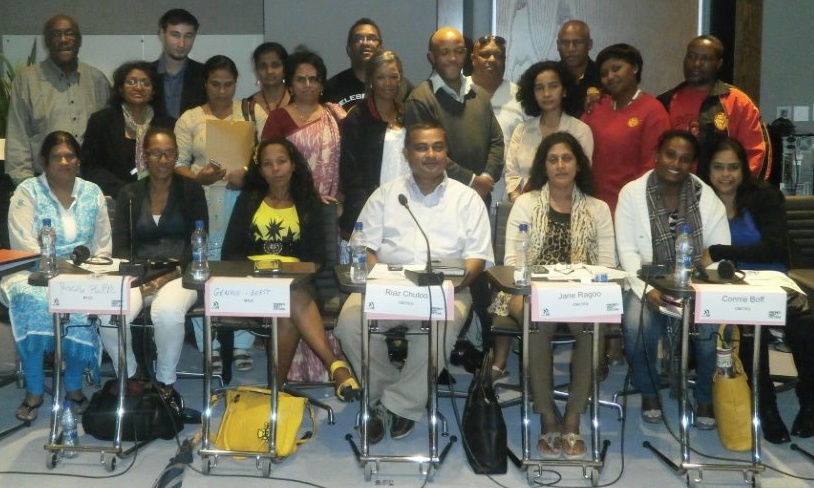Read this article in:
English
2 June, 2015IndustriALL Global Union affiliates in Mauritius met to discuss ways to organize in the garment industry supply chain.
Union leaders and workers in export processing zones in Mauritius took part in the joint IndustriALL/FES workshop on 27 to 29 May.
Garment workers have the lowest minimum wage in the country, and IndustriALL affiliates reported long working hours with an obligatory overtime of ten hours per week.
Participants also relayed the difference in treatment between local and migrant workers, which is illegal under national legislation.
Most textile and garment factories are located in the country's Export Processing Zone, where trade unions do not have access to the plant to organize workers. Hence less than 5 per cent of the 60,000 workers are unionized.
Mauritius has ratified the International Labour Organization’s Convention number 87 on the right to freedom of association and organize, but it is not implemented. Participants agreed that the law needs amending to force freedom of association in export processing zones.
Mauritius is producing for South Africa and USA brands, as well as some European retailers.
A delegation from IndustriALL’s South African affiliate, SACTWU, shared their experiences in organizing, introduced South African brands to the participants, and committed to support unions who are organizing in factories supplying for South African retailers.
In discussions with the new Minister of Labour, Soodesh Satkam Callichurn, after the workshop, IndustriALL and its affiliates asked the Minister to raise the minimum wage in the garment sector and requested that a mechanism is put in place to enforce freedom of association and collective bargaining in the country. They also called for the harmonizing of working conditions between local and migrant workers.
Mauritius was among the pioneers in the garment industry, long before the fast fashion changed the face of the sector, and long before export processing zones were established to attract investors from around the world. It has adapted to the changing dynamism of the garment sector through investing in the latest textile and garment technology, establishing fashion and design schools, and maintaining cheap labour through migrant workers.
